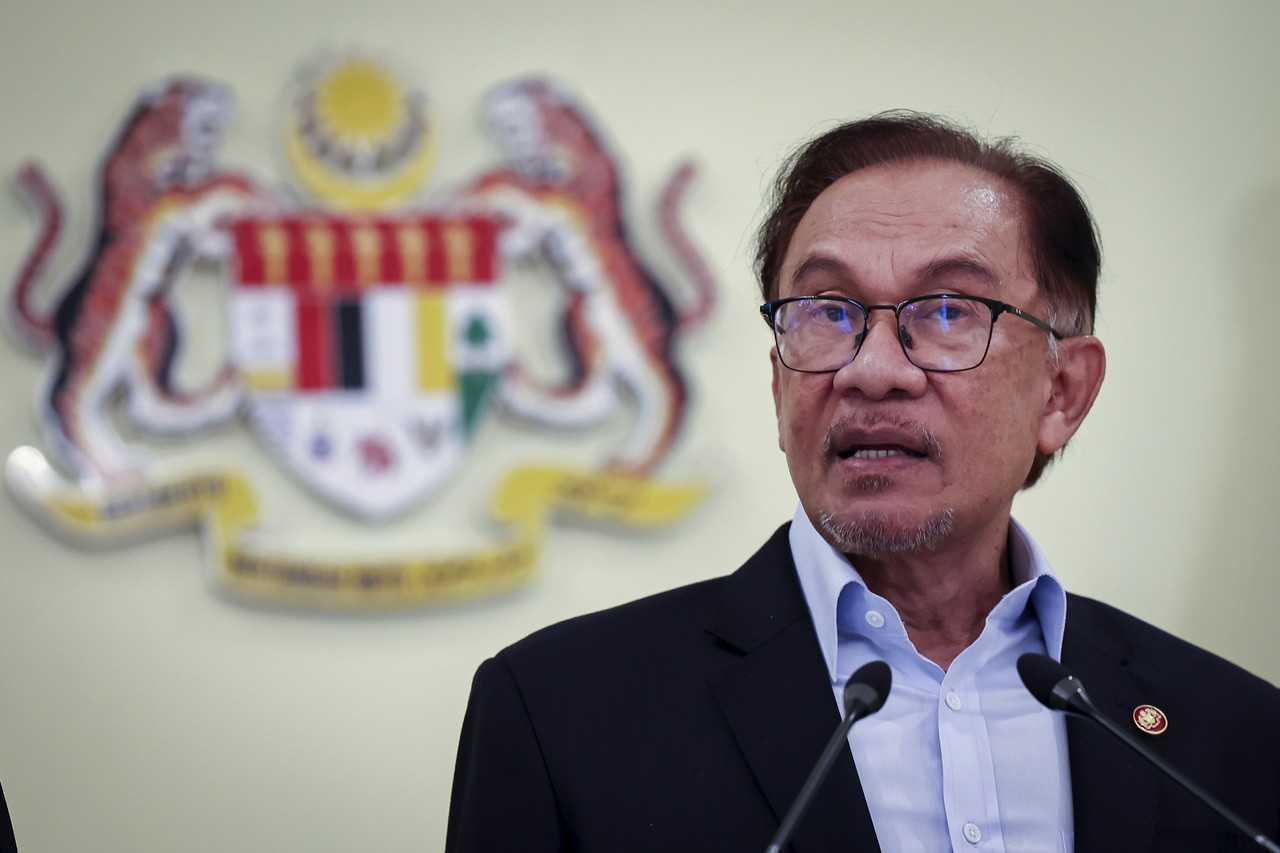Anwar claims 'positive developments' in US policy, as arms shipments for Israel continue
The prime minister made the remarks as his own government is under fire for a series of decisions seen as undermining the Palestinian struggle.
Just In
Prime Minister Anwar Ibrahim praised Washington for what he said was a change in the US's pro-Israel stance, despite President Joe Biden's plans to supply billions of dollars worth of more weapons to the Zionist state and the US condemnation of the International Criminal Court's (ICC) move to seek arrest warrants for Israeli Prime Minister Benjamin Netanyahu and Defence Minister Yoav Gallant.
Speaking at the 37th Asia-Pacific Roundtable, Anwar welcomed "positive developments" in the US stance.
"Within the constraints of the US political system in an election year, President Biden has recently expressed growing impatience with his Israeli counterpart.
"He has also begun to push for an acceptance of a proposal for a ceasefire in exchange for the release of hostages.
"We welcome these early signs of change in America’s approach towards the conflict," he said in remarks that are likely to rally pro-Palestinian groups in Malaysia, who have criticised Anwar's government for a series of decisions seen as undermining Malaysia's policy of supporting the Palestinian struggle.
In recent days, Anwar has come under fire for the involvement of a company owned by controversial US global investment fund BlackRock in a government-led consortium to manage Malaysia's airports.
Under the deal announced last month, BlackRock's Global Infrastructure Partners (GIP) will take a 30% stake in the consortium, a move that sparked protests due to BlackRock's reputation as a company with close ties to Israel's economy and defence industry.
Anwar has so far dismissed the protests, just as he had defended the participation of US defence companies that support the Israeli military in a defence exhibition organised by the Malaysian government in early May.
The Defence Services Asia and National Security Asia exhibitions in Kuala Lumpur were also attended by Lockheed Martin, the defence company in which BlackRock has a 7.4% stake.
Last week, dozens of groups called on Anwar's government to withdraw Malaysia's participation in a US-led maritime military exercise that will also involve the Israeli army.
The Malaysian chapter of global anti-Israel movement Boycott, Divestment, Sanctions (BDS Malaysia) led the call, urging Malaysia to immediately withdraw from the Rim of the Pacific Exercise (Rimpac), which will take place from June 26 to Aug 2.
Prominent Palestinian academic Azzam Tamimi recently weighed in on the debate, urging Malaysia to walk the talk.
"The least that the Malaysians can do for Palestine is to boycott companies, firms, or institutions that aid Israel in its genocide against the Palestinians. Short of this, how can one call themselves supporters? Supporters in what sense?" he said.
Fresh arms shipments
Anwar's remarks welcoming "change" in US policy of supporting Israel came at a time when the White House took no concrete action to punish Israel for attacking Rafah and killing dozens of Palestinian civilians, despite Biden's repeated pleas not to invade the border town where more than half of Gaza's population has fled since the war that has killed at least 35,000 Palestinians, mostly women and children.
Biden had said he withheld arms shipments to Israel in April because he feared Israel would use them in Rafah, but at the same time saying he had authorised other arms shipments.
Despite statements opposing Israel's incursion into Rafah, the White House said only three weeks ago that it planned to supply the Zionist state with more than US$1 billion in new weapons.
This is despite the fact that the US is against a full-scale invasion by the Israeli military in the southern Gaza city of Rafah.
According to an AP report, the delivery will include US$700 million in tank ammunition, US$500 million in tactical vehicles.
Anwar also claimed in his speech today that Hamas leaders he met with recently were open to the idea of a two-state solution, a policy that recognises both Israel and a free Palestinian state, which has been criticised recently due to the Israeli leadership's open rejection of Palestinian statehood.
"I am pleased to say that in my last meeting and recent communications with them (Hamas), they seem to be more amiable to accepting these proposals for amicable resolution, permanent cerasefire and accept a two-state solution," he said.
There have been calls for Malaysia to abandon its policy of supporting the two-state solution.
The plan, part of the 1993 Oslo Accords, was contingent upon Israel fulfilling a number of conditions, including on the status of Jerusalem, illegal Jewish settlements and the right of return for Palestinian refugees, all of which the regime has failed to meet.
Earlier this year, former Umno leader Khairy Jamaluddin called on Malaysia to stop promoting the two-state solution.
"Israel does not believe in a two-state solution at all. They have done nothing in the last ten years to show that they are committed to a two-state solution," said the former minister.
"They (Israel) pretend to respect the two-state solution, but in reality they do not. So I think it's time for Malaysia to stop saying that we support the two-state solution."
A month before the Hamas attacks on Oct 7 last year, think tank Center for Human Rights Research and Advocacy (Centhra) questioned Anwar for supporting Asean's decision to endorse the two-state solution.
"Given Malaysia's historical commitment to self-determination and human rights, we urge the prime minister to reconsider and take a more resolute stance against Israeli apartheid. The call for such a stance is grounded in a firm commitment to upholding international law, human rights and justice which have long been at the core of Malaysia's foreign policy," said Azril Mohd Amin of Centhra.
Subscribe to our newsletter
To be updated with all the latest news and analyses daily.
